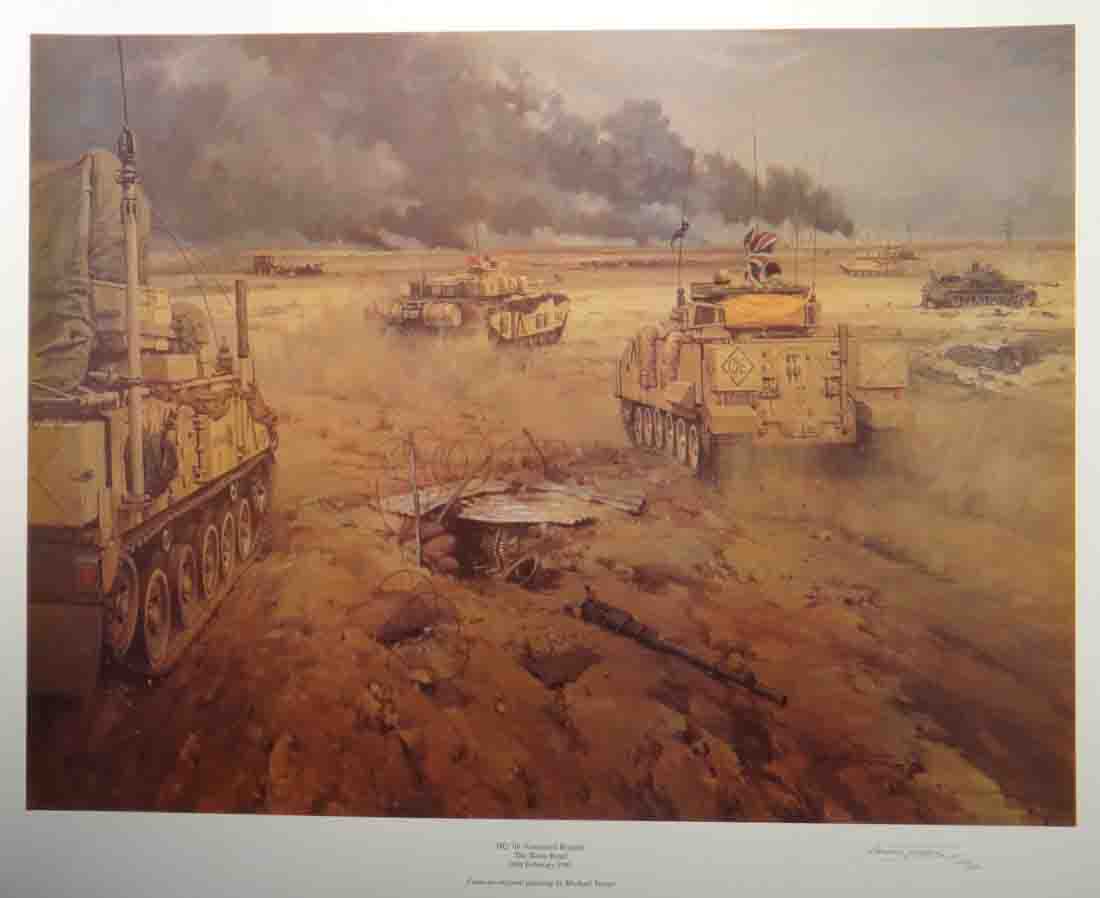Michael Turner
Signed, limited edition prints, Miltary

HQ 7th Armoured brigade
The Basra Road
28th February, 1991
Signed limited edition print of 250
by Michael Turner
Image size 21" x 16"
Basran troops fought the Sasanian Persians at Nahavand and conquered the western provinces of Iran ,
while the town itself was the site of the Battle of the Camel , an encounter between A ishah, the Prophet Muhammad's widow, and ?Ali, Muhammad's son-in-law and fourth caliph.
In the years during and after Ali's caliphate, Basra was a focus of the political strife that arose between the competing religious factions in Islam.
This political friction was intensified by a volatile social situation.
Whereas the Arab army constituted an aristocracy in Basra, the local and various migrant peoples who had settled there (Indians, Persians, Africans, Malays) were merely mawali, or clients attached to Arab tribes.
Basran history from the late 7th century is thus one of unrest and insurrection.
The city was seized briefly by the forces of a claimant of the caliphate, Abd Allah ibn al-Zubayr (died 692), then became the centre of Ibn al-Ash'ath's revolt in 701 and al-Muhallab's revolt in 719-720.
Conditions did not improve under the Abbasids, who took over the caliphate in 750.
The uprisings continued: the Zott, an Indian people, rose up in 820-835; the Zanj, African blacks brought into Mesopotamia for agricultural slave labour, rebelled about 869-883.
The Qarmatians, an extremist Muslim sect, invaded and devastated Basra in 923, and thereafter the city declined, overshadowed by the prominence of the Abbasid capital, Baghdad.
By the 14th century, neglect and the Mongol invasions left little of the original Basra standing, and by the turn of the 16th century it was relocated at the site of ancient Al-Ubullah, a few miles upstream.
Basra had been, however, a brilliant cultural centre in its own right throughout the 8th and into the 9th century.
It was the home of noted Arab grammarians, poets, prose writers, and literary and religious scholars.
Islamic mysticism was first introduced in Basra by al-?asan al-Ba?ri, and the theological school of the Mu?tazilah developed there.
Basra is perhaps best known to Westerners as the city from which Sinbad set out in The Thousand and One Nights.